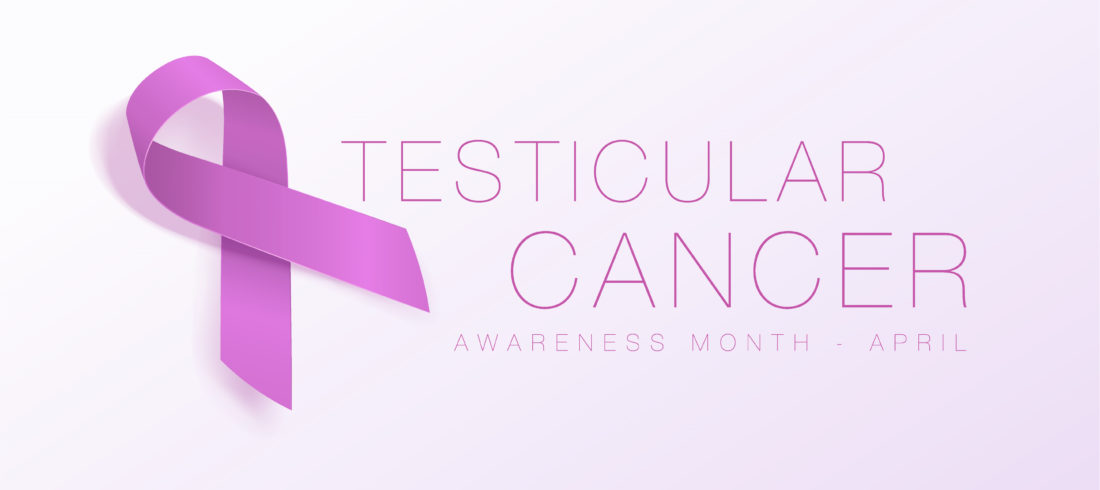What is testicular cancer?
Testicular cancer affects the testes. While it only accounts of 1% of all cancers, it is the number one cancer in men ages 20-34. The risk may be high, but the survival rate is even higher. When detected early, over 90% of testicular cancer patients can be cured in a single treatment.
What are the symptoms of testicular cancer?
The most common symptom of testicular cancer, and probably the most alarming, is a lump on a testicle. Since this is where the cancer starts, this would be the first place to check. If the cancer has spread outside of the testicles, symptoms may appear elsewhere. If you experience unusual pain or discomfort in your back or lower abdomen, the cancer may have spread to the lymph nodes in the back of your abdomen. A cough or shortness of breath may indicate the cancer has spread to the lymph nodes in your chest area. Lastly, if your nipples or breasts are tender, this can be caused by the hormones produced by the cancer, but it is not a common side effect.
How is testicular cancer diagnosed?
If you or your doctor finds a lump, you should make an appointment with an urologist right away. The urologist will then perform a variety of tests including an ultrasound. The ultrasound is used to detect what is going on in the testicles. It can be used to detect whether the lumps are solid or filled with fluid, and whether they are inside or on the testicle. If your doctor has reason to believe that the lumps may be cancerous, he or she will do a blood test. Our blood naturally has what are called “tumor markers”. Tumor marker levels will be raised if a tumor is present, but this does not automatically mean you have cancer – it just helps the urologist make a more accurate diagnosis.
Will I lose a testicle?
Just because you are diagnosed with testicular cancer does not mean that you will lose a testicle. Removal of the affected testicle is the most common treatment, but it is not the only one. Losing a testicle is not something a man wants to do, but it is better than the option of losing your life.
What are the treatment options for testicular cancer?
Besides surgery, your urologist may also recommend radiation or chemotherapy, depending on what stage your cancer is in.
–Radiation: High-energy X-rays or other types of radiation are used to kill cancer cells. External radiation directs radiation toward the cancer from outside the body. Internal radiation delivers radiation directly into or near the cancer.
–Chemotherapy: Powerful, cancer-killing drugs are used to stop the cancer from growing, either by killing the cancer cells or stopping them from dividing.
If I have testicular cancer, can I still have children?
If you are diagnosed with testicular cancer, but still want to have children, we highly recommend sperm banking before you undergo any treatment. Certain treatments may cause temporary, or even permanent infertility. Sperm banking is the process of freezing sperm and storing it for later use. Not all testicular patients become infertile, but it’s always a good idea to have a back-up option.
How do I check myself for testicular cancer?
Performing a self-examination is simple and quick. Just follow these three easy steps:
- Hop in the shower…the shower is the best place to check yourself because the steam allows your scrotum to relax, making it easier to feel any abnormalities.
- Check one testicle at a time…using a small amount of pressure; roll one testicle at a time through your fingers searching or anything that feels out of the norm.
- After you’re done…if you don’t notice anything, you’re in the clear; just remember to perform this self-examination once a month. If you do feel something, a hard lump, a change in size or shape, make an appointment with a urologist right away.
What should I do if I find a lump?
If you do find a lump, don’t panic. Finding a lump does not automatically mean you have testicular cancer. It does mean that you need to schedule an appointment to see your urologist as soon as possible. The sooner you get it checked out, the sooner you will find relief or an opportunity for treatment early on.
I have testicular cancer. What do I do?
Hearing your doctor say, “you have testicular cancer” is a moment no one can be prepared for. The road to remission may have its bumps and turns, but knowing what to do next will help.
Relax: This may be easier said than done, but we want to give you a few things to consider. First of all, testicular cancer is highly treatable. If you were lucky enough to catch it in Stage 0 or Stage 1, meaning the cancer is still confined to the testicles, your chance of survival rate is 99%.
Self-Advocate: It’s important to be actively involved in your treatment. If you have questions, ask them. If there is something you don’t understand, ask for your doctor to clarify. Being a self-advocate doesn’t mean you have to fight this battle alone. If friends or family offer to help, take them up on the offer. The less you have to stress about, the better you’re going to feel.
Know Your Treatment Options: With multiple options available, such as radiation and chemotherapy, it is wise to ask your doctor to go over the treatment options and explain why he or she is choosing a specific treatment for you.
Where can I find support groups?
Having the support of friends and family is important, but sometimes what you really need is someone who has been in your shoes. There are various support groups throughout the country available for you to join.
If you’re in the Hudson Valley, give Premier Medical Group’s Urology Division a call at 845-437-5000 for more information.

